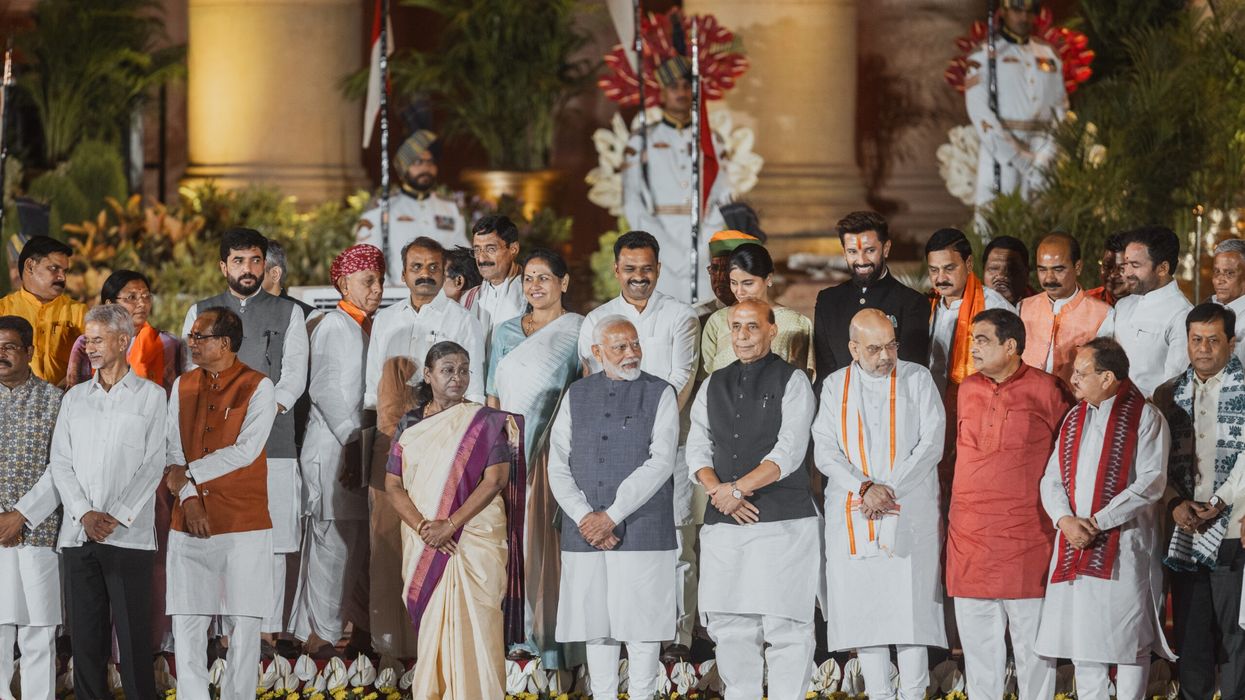India’s prime minister Narendra Modi unveiled his new cabinet on Monday (10), with key posts unchanged, signalling broad policy continuity.
That includes Modi's Bharatiya Janata Party (BJP) loyalists Rajnath Singh, Amit Shah, Nitin Gadkari, Nirmala Sitharaman and S Jaishankar - the defence, interior, transport, finance and foreign ministers respectively, staying on in their jobs.
Powerful BJP president Jagat Prakash Nadda was named as health minister.
Posts given to coalition leaders include civil aviation, to Kinjarapu Rammohan Naidu of the Telugu Desam Party (TDP), the BJP's biggest ally.
Other coalition posts include smaller ministries such as heavy industry, food processing and fisheries.
Eleven posts went to coalition allies who extracted them in exchange for their support - including five in the top 30 cabinet posts.
There are no Muslim MPs among his third-term lineup, unlike his past two governments.
Seven of the 71 ministers are women, with two in the top cabinet.
Modi was forced into quick-fire talks with coalition partners in the National Democratic Alliance (NDA), whose 293 seats guaranteed him the parliamentary numbers to govern.
Addressing leaders of the NDA coalition last Friday (7), Modi struck a conciliatory note, saying that for him all its constituents were equal, irrespective of the number of parliamentarians they had.
"It's an experienced team and they will advise me well," Modi said, pointing to the chiefs of more than half a dozen NDA parties seated together. "Together, the team will take the right decisions."
"We have won the majority and it is needed to run a government. But to run the country, unanimity is crucial. We will strive for unanimity and leave no stone unturned in taking the country forward on the path of progress."
The BJP said it respects its partners and their aspirations and added that the allies had given a free hand to Modi.
"It's a pre-poll alliance and the plan for the next five years has been deliberated and discussed with everyone," said BJP spokesperson Syed Zafar Islam.
"There is unconditional support and the focus is to ensure there is momentum in the economy, and continuity is important. There is no condition for their support - they also want the economy to be accelerated, for lots of jobs to be created."
Delhi was abuzz with talk of haggling by the allies for key portfolios and analysts said there could be some anger over the cabinet choices but no immediate fall-out.
"He has managed to prevail over his allies to keep all the important portfolios to demonstrate continuity, and they seem to have gone along," said Tarun Basu, director of the New Delhi-based Society for Policy Studies think tank.
"Despite this outward projection, there will inevitably be internal pulls and pressures within the coalition, though these may not come out in the public so quickly."
Modi held his first cabinet meeting Monday evening, where plans were approved for assistance for 30 million new homes for poor families. He also approved the latest tranche of a cash handout for 93 million farmers.
Two-thirds of India's 1.4 billion people draw their livelihood from agriculture, which accounts for nearly a fifth of the country's gross domestic product.
No date has been set for the opening of parliament, but Indian media have reported the new session is expected to begin next week, when the speaker will be elected.
(Agencies)





